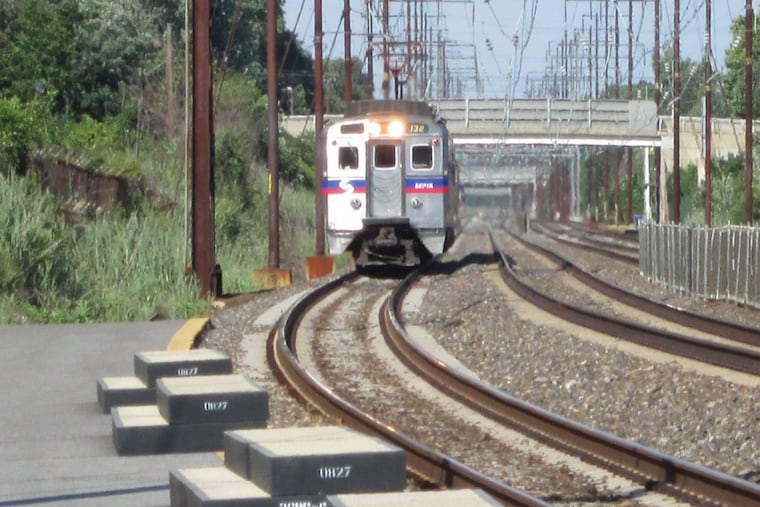Crumbling Northeast Corridor railways in Pa. need help now | Opinion
Modernizing America's infrastructure is a central pillar of President Trump's economic agenda, and the funding allocated for infrastructure in the omnibus spending bill marks important progress for workers and businesses across the country. But now lawmakers on Capitol Hill must prioritize critical projects in Pennsylvania and along the entire Northeast Corridor to ensure that our national economy is competitive far into the 21st century.

The $1.3 trillion omnibus spending package recently approved by President Trump and Congress includes much-needed infrastructure funding that could help Pennsylvania rebuild its crumbling railways. But it is now up to the Appropriations Committees in both the Senate and the House to take the next step by prioritizing more federal funding for critical repairs and upgrades along Pennsylvania's stretch of the Northeast Corridor rail system.
The corridor spans 500 miles from Washington to Boston and is the economic engine of the Northeast, which collectively contains around one-third of American jobs and generates around $3 trillion in economic productivity each year. More than 820,000 riders depend on Northeast Corridor trains every day, and thousands of businesses rely on the system to conduct commerce, which is the reason rail delays and disruptions can lead to devastating losses.
The nonpartisan Northeast Corridor Commission found that a shutdown of the system would cost the American economy more than $100 million per day. These potential damages show why the deteriorating condition of Pennsylvania's rail infrastructure is a threat to the long-term economic health and competitiveness of the nation.
Congress should be deeply concerned about the dire state of Pennsylvania's aging infrastructure, and it is why federal investment is so urgently needed. Most of the state's railways were built in the years between the Civil War and the 1930s — and that infrastructure is crumbling and cannot last much longer.
The Northeast Corridor Commission also found that it will cost at least $50 billion over the next 20 years to bring the corridor into a state of good repair up and down the line. The longer we wait, the more expensive that price tag will become.
The Appropriations Committees can begin addressing this by focusing on providing new federal funding to priority projects in Pennsylvania — all of which have a significant role to play in shoring up the system and strengthening our national economy.
For example, there is a $6.5 billion plan to modernize 30th Street Station and create 10 million square feet of transit-oriented development in surrounding areas, but it lacks the money needed to begin construction.
The list of projects in need goes on and on — but Congress has the power to tackle this economic challenge by providing the new investments needed to get the ball rolling in Pennsylvania and throughout the corridor.
Fortunately, lawmakers on both sides of the aisle have begun discussing this urgent need as part of budget negotiations. All that is needed is for both houses to build on this bipartisan consensus during appropriations discussions in order to expedite vital projects such as Philadelphia's 30th Street Station plan.
Modernizing America's infrastructure is a central pillar of President Trump's economic agenda, and the funding allocated for infrastructure in the omnibus spending bill marks important progress for workers and businesses across the country. But now lawmakers on Capitol Hill must prioritize critical projects in Pennsylvania and along the entire Northeast Corridor to ensure that our national economy is competitive far into the 21st century.
Michael Friedberg is the executive director for Coalition for the Northeast Corridor.